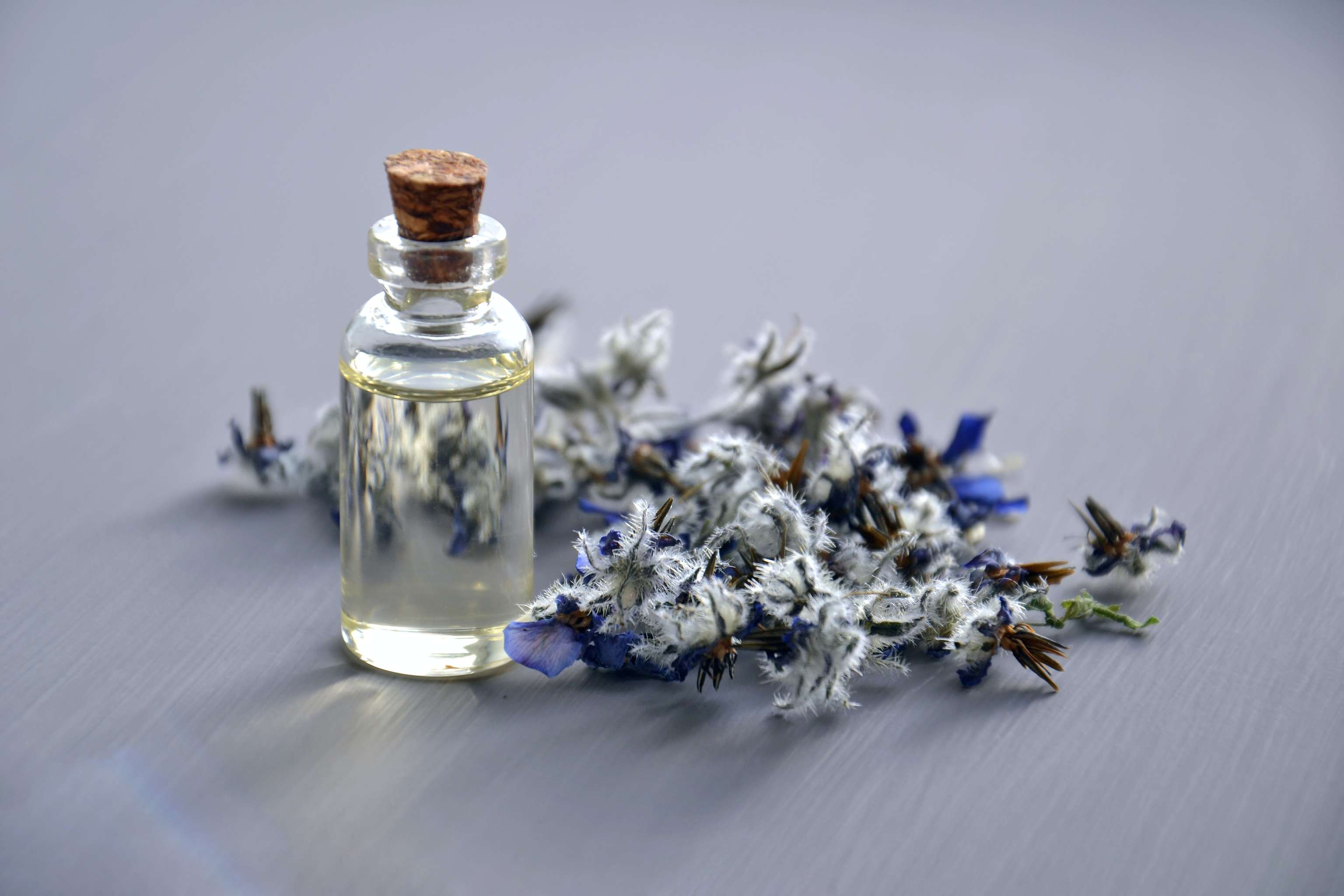Does aromatherapy work for Alzheimer's?

What is Aromatherapy:
After its introduction for geriatric care, complementary alternative medicine, which uses "non-pharmacological" approaches in addition to the use of pharmaceuticals, has gained even greater alternative use in the treatment of age-related dementia. In this context, alternative medicine approaches are used to complement pharmacotherapy in nursing homes for elderly patients. This includes what is known as aromatherapy, which works exclusively with plant substances such as essential oils, absolues (i.e. highly concentrated oily fragrances obtained with solvents) and resinoids (i.e. extracts from resins) as well as fatty oils. In this process, the oil extracted from the plant is assigned a specific scent effect which is then used in the traditional treatment methods. The exact mechanisms of action for the efficiency of aromatherapy are not yet fully known.
Mode of action:
In aromatherapy, odor molecules of essential oils adhere to the olfactory epithelium in the nasal cavities. Via the olfactory nervous system, the chemicals picked up by the chemosensory cilia are detected and subsequently transmitted to the hippocampus or limbic system of the brain and the amygdala. The information is recognised as an odour and the stimulus subsequently influences the regulation of the autonomic nervous system and a number of vital reactions in the brain - such as the release of neurotransmitters.
Zusammengefasst löst das Geruchsmolekül bei der Aromatherapie unterschiedliche vitale Reaktionen aus.
According to researchers, despite the possibly impaired sense of smell of Alzheimer's patients, a revival of the olfactory nerves is possible. It is hypothesized that improvements in cognitive function could result from so-called neuropoesis(i.e., differentiation of stem cells into, for example: adult neurons).
In the existing study, the aromatherapy applied did not include aroma massages, aroma baths, or touch therapy due to potential physical problems such as burning at low temperatures. Common therapy use in healthy people includes essential oils of lavender and rosemary - with lavender even showing significant effects on insomnia in other randomized trials.
Japanese Study Method:
The study, published in the Japanese medical journal Psychogeriatrics, examined 28 elderly people, with a median age of 86, with various forms of age-related dementia. Both patients and their relatives were fully informed and consented about the study methods and purpose, according to researchers.
After a control period of 28 days, classical aromatherapy was applied to the patients for another 28 days. The subsequent follow-up period was again 28 days. The therapy used essential oils of rosemary and lemon in the morning and lavender and orange in the evening. Using the so-called Japanese version of the Gottfries, Brane, StandingDementia Scale and other methods, study researchers were able to determine the possible effect of aromatherapy. This was measured a total of four times: before the control period, after the control period, after the aromatherapy phase and after the follow-up period.
In the aromatherapy phase, patients were treated with 0.04 ml of lemon oil and 0.08 ml of rosemary oil in the morning between 9 and 11 am and 0.08 ml of lavender oil and 0.04 ml of orange oil in the evening between 7:30 and 9 am. During this process, the essential oils were placed in electric diffusers (i.e., devices that slow fluid flows and increase fluid pressure). The essential oils themselves were manufactured in Tokyo, Japan. Each patient room was equipped with two pieces of diffusers.
Cognitive improvements:
The results showed significant improvement in individual orientation related to cognitive functions on the survey scales used for all patients studied after the aromatherapy phase. In addition to this, routine laboratory tests were carried out in the study. These showed no changes in scores, which Japanese researchers say is an indicator that no side effects related to aromatherapy use developed. An additional values analysis was also able to confirm that caregivers had no effect on the improved patient scores in the tests performed, according to the study.
Conclusion:
The results of the study suggest that classic aromatherapy was able to show a significant effect as a non-pharmacological alternative for age-related dementia. In this regard, according to researchers, cognitive function was improved in all patients studied. In future more wide-ranging studies with more subjects, the use of aromatherapy offers great potential for complementary care treatments, especially in Alzheimer's patients related to cognitive function.
Sources
- Jimbo D, Kimura Y, Taniguchi M, Inoue M, Urakami K. Effect of aromatherapy on patients with Alzheimer's disease. Psychogeriatrics. 2009 Dec 9.
- Wheatley D. Medicinal plants for insomnia: A review of their pharmacology, efficacy and tolerability. J Psychopharmacol 2005.
- Alzheimer Schweiz
- Alzheimer Gesellschaft Österreich
- Deutsche Alzheimer Gesellschaft

Danilo Glisic
Last updated on 11.10.2021
Your personal medication assistant
Browse our extensive database of medications from A-Z, including effects, side effects, and dosage.
All active ingredients with their effects, applications, and side effects, as well as the medications they are contained in.
Symptoms, causes, and treatments for common diseases and injuries.
The presented content does not replace the original package insert of the medication, especially regarding the dosage and effects of individual products. We cannot assume liability for the accuracy of the data, as the data has been partially converted automatically. Always consult a doctor for diagnoses and other health-related questions.
© medikamio